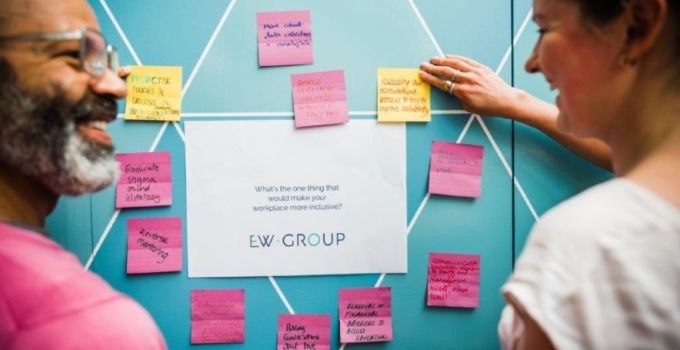What is reverse mentoring, and why is it so valuable to managers and senior leaders?
An EW reverse mentoring arrangement opens a two-way conversation on EDI between mentor and mentee—for the benefit of both. The mentee gets the chance to have open and honest dialogue with a key decision-maker in their organization. The senior leader or manager gains real-world insight into the everyday experiences of their staff and the communities they serve. Reverse mentoring also supports leaders to develop their own diversity narrative in a way that is authentic, unforced and relatable.
Growing Cultural Trends
47% of millennial employees think a company’s approach to diversity and inclusion is important when considering a new job
International Workforces
Immigrants make up 17% of the US workforce
Encourage mutual exchange around EDI
Reverse mentoring bridges generational gaps for mutual benefit
Take millennials and Gen Z, who Forbes magazine has called ‘the change agent generation’ when it comes to EDI. Research by Gallup shows that Gen Z and younger millennials (staff born between 1989 and 2001) rank an organization’s diversity and its inclusion of everyone as one of the three most important aspects they look for in a modern-day employer (after employee wellbeing and ethical leadership).
In other words, get EDI right in the eyes of your younger, more diverse staff, and you’re more likely to retain your top young/diverse talent. The mentees, meanwhile, get the opportunity to leave their mark on their mentors, be it by building new skills or generating awareness of key issues. In turn, this will boost their confidence, engagement and sense of belonging as part of a more unified, inclusive and equitable workplace culture.

Relationship-building done right
Reverse mentoring equals diverse mentoring – The EW approach
We’ll work directly with you to make sure your mentors and mentees get as much value as possible out of their reverse mentoring arrangements. This includes:
- Delivering prep sessions ahead of the mentoring relationship that equip both sides to get the best out of working together
- Ensuring everyone understands the commitment and the boundaries involved
- Working with mentors to develop their cultural awareness and their understanding of the subtleties of workplace (dis)advantage
- Appreciating the barriers that mentees may face as they progress their careers
- Enabling leaders to think about privilege and to apply principles of allyship
- Establishing a structure of support for mentors throughout the process




